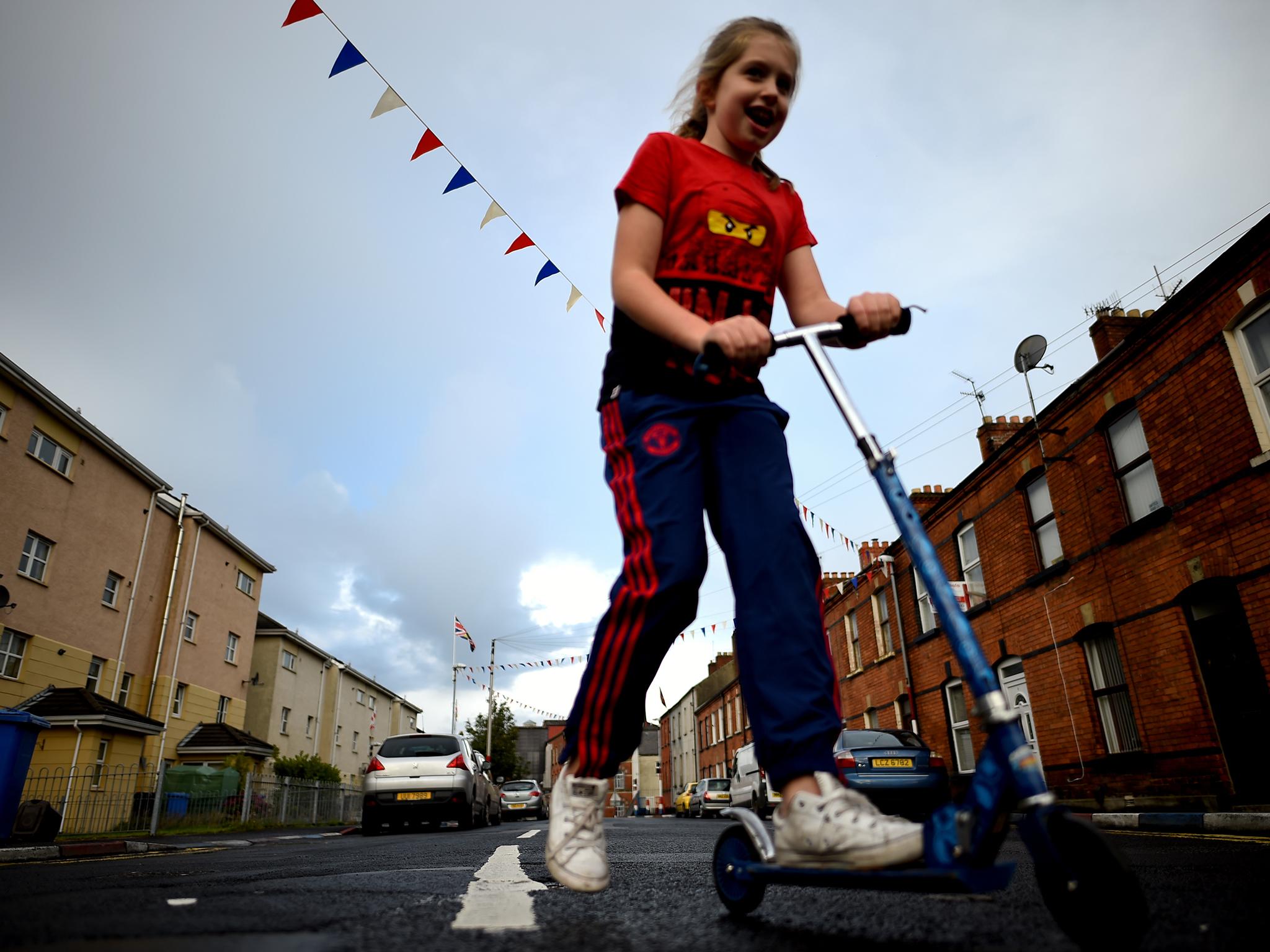Northern Ireland: After the Troubles, life inside The Fountain
‘Nationalists wouldn’t be welcome to live here, even today. Just the same as Protestants wouldn’t be made welcome in the Bogside.’ Clodagh Kilcoyne on the hardcore community sitting tight in the city of Derry

Your support helps us to tell the story
From reproductive rights to climate change to Big Tech, The Independent is on the ground when the story is developing. Whether it's investigating the financials of Elon Musk's pro-Trump PAC or producing our latest documentary, 'The A Word', which shines a light on the American women fighting for reproductive rights, we know how important it is to parse out the facts from the messaging.
At such a critical moment in US history, we need reporters on the ground. Your donation allows us to keep sending journalists to speak to both sides of the story.
The Independent is trusted by Americans across the entire political spectrum. And unlike many other quality news outlets, we choose not to lock Americans out of our reporting and analysis with paywalls. We believe quality journalism should be available to everyone, paid for by those who can afford it.
Your support makes all the difference.William Jackson remembers the exodus vividly, when over 10,000 Protestants fled the west bank of Londonderry’s River Foyle for the city’s suburbs as Northern Ireland’s “Troubles” erupted.
Almost 50 years on Jackson is among some 250 Protestants who stayed and carved out a tiny enclave known as The Fountain, a tight, fiercely pro-British community that is separated by high walls and fences from the surrounding Irish nationalist heartland.
“You are not talking one or two families, you are talking hundreds and hundreds and hundreds,” Jackson said, recalling the flight which began in 1969 when British troops were sent to the city to quell unrest over a civil rights campaign launched by the Catholic minority.
Three decades of bloodshed followed between Catholic Irish nationalists, seeking to unite with Ireland, and pro-British Protestant loyalists, who want to remain part of the United Kingdom.
Around 3,600 people were killed before the 1998 Good Friday Agreement brought a political agreement – and peace.
Much of Northern Ireland has since been transformed, yet in many areas the two sides remain separated by so-called “peace walls”. The fences of up to 15 metres, set up in the years after 1969, were supposed to be temporary but many still remain.
In The Fountain, the metal gate in the wall between it and the nearby Bogside area – home to the late Irish nationalist hero Martin McGuinness – is locked at 9pm each night and it remains one of the province’s flashpoints when sporadic violence breaks out.
“We stayed here because we’re hardcore,” said Jackson. “We managed to stay as a small community and it’s always been that way. Nationalists wouldn’t be welcome to live here, even today. Just the same as Protestants wouldn’t be made welcome in the Bogside. It’s just one of those things unfortunately.”
Social codes are so ingrained that it is virtually unheard for people to spend time in the opposing community’s neighbourhood but anyone who did could face threats or a beating from local hardliners.
“Outsiders”, as locals refer to Protestants not originally from the area, have moved in but only last around five or six years, according to Jackson, who runs the local Heritage Tower museum, one of the smallest galleries in Northern Ireland.
“You have families that come and spend a year and they go because of the way of life here,” he said. “Some of the police have actually referred to us as like rats living in a cage.”
The area remains blighted by poverty and many houses remain derelict. Some residents say they disconnect their electricity periodically to save money.
At The Fountain’s Cathedral Youth Club, Jeanette Warke has spent the last 45 years providing an education and recreational outlet to three generations of youngsters who went from dodging bullets to fighting unemployment.
Warke has seen The Fountain change over that time and now concentrates on better integrating local Catholic and Protestant children. Last year she brought them to Dublin, for the centenary of the Irish uprising that led to independence from Britain, and to France, for a commemoration of the First World War Battle of the Somme.
“We’ve really opened up big avenues for these young people, Protestant and Catholic to look at their history,” said Warke, who still works at the age of 73 and has been honoured by the Queen for her services to young people.
“You’re not looking to change young people’s mindsets and to take them away from their own culture, that’s not what we are about. We’re looking to create a better understanding and also respect for each other and that to me is very, very important.”
However Jackson, Warke and other locals think it’s still too soon to tear down the walls between Protestants, who call their city Londonderry, and Catholics, who refer to it simply as Derry. There’s more work to do, Warke said.
Until then, The Fountain community will remain as tight as ever.
“My mother says the only time she will leave the Fountain is in a box,” said 38-year-old Daphne Atkinson, a fellow youth club worker.
“She’s proud of where she’s from, which is a good thing, so she’ll not leave only when it’s her time to go.”
Reuters
Join our commenting forum
Join thought-provoking conversations, follow other Independent readers and see their replies
Comments